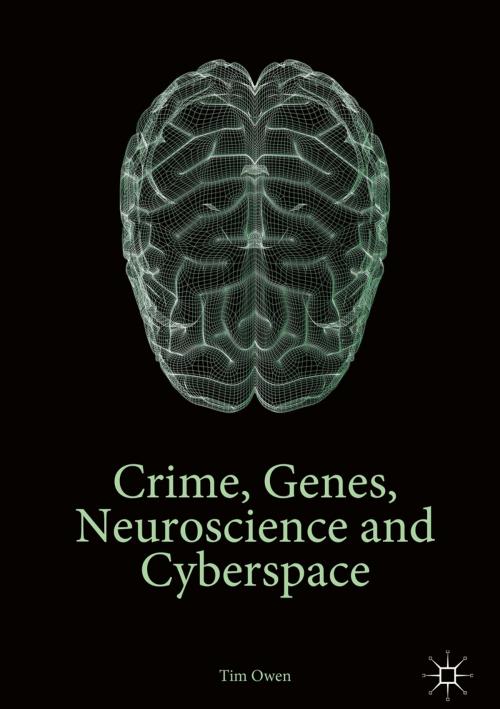Crime, Genes, Neuroscience and Cyberspace
Nonfiction, Health & Well Being, Medical, Specialties, Internal Medicine, Neuroscience, Social & Cultural Studies, Social Science, Crimes & Criminals, Criminology| Author: | Tim Owen | ISBN: | 9781137526885 |
| Publisher: | Palgrave Macmillan UK | Publication: | September 18, 2017 |
| Imprint: | Palgrave Macmillan | Language: | English |
| Author: | Tim Owen |
| ISBN: | 9781137526885 |
| Publisher: | Palgrave Macmillan UK |
| Publication: | September 18, 2017 |
| Imprint: | Palgrave Macmillan |
| Language: | English |
This book applies Owen’s unique genetic-social framework to the study of crime and criminal behaviour, with an emphasis on cybercrime. Moving beyond challenges which confront contemporary criminological theorizing such as: the stagnation of critical criminology, the relativistic nihilism of the ‘cultural turn’, posthumanism, and virtual criminology, the author codifies and ‘applies’ the latest version of the framework to the study of crime, both in and out of cyberspace.
Drawing upon evolutionary psychology, behavioural genetics and the philosophy of Heidegger, he introduces new terms such as ‘Neuro-Agency’ and notions of Embodied Cognition into criminological theorizing. Adopting a soft compatibilist approach to free-will, and Realist ontology, Owen’s meta-theoretical focus provides a new direction for criminological theorizing, in particular in the direction of the conceptualization and prediction of cyber violence. Exciting and timely, this book will appeal to scholars and advanced students of criminology, law, sociology, social policy, psychology, philosophy, policing and forensic investigation.
This book applies Owen’s unique genetic-social framework to the study of crime and criminal behaviour, with an emphasis on cybercrime. Moving beyond challenges which confront contemporary criminological theorizing such as: the stagnation of critical criminology, the relativistic nihilism of the ‘cultural turn’, posthumanism, and virtual criminology, the author codifies and ‘applies’ the latest version of the framework to the study of crime, both in and out of cyberspace.
Drawing upon evolutionary psychology, behavioural genetics and the philosophy of Heidegger, he introduces new terms such as ‘Neuro-Agency’ and notions of Embodied Cognition into criminological theorizing. Adopting a soft compatibilist approach to free-will, and Realist ontology, Owen’s meta-theoretical focus provides a new direction for criminological theorizing, in particular in the direction of the conceptualization and prediction of cyber violence. Exciting and timely, this book will appeal to scholars and advanced students of criminology, law, sociology, social policy, psychology, philosophy, policing and forensic investigation.















